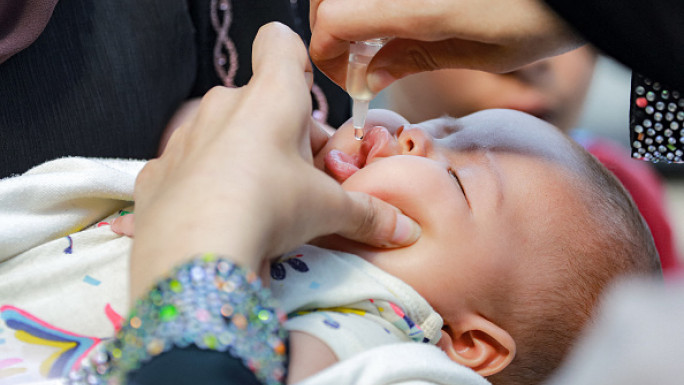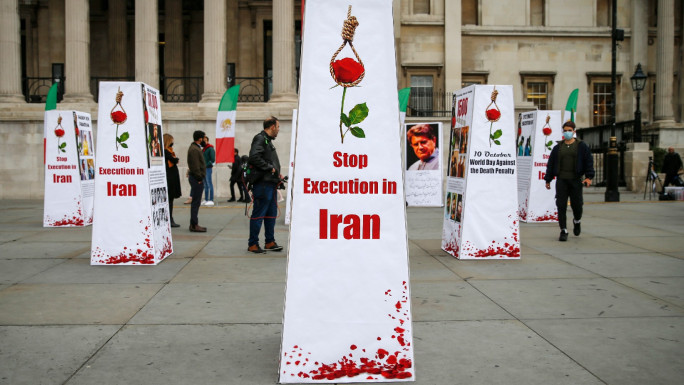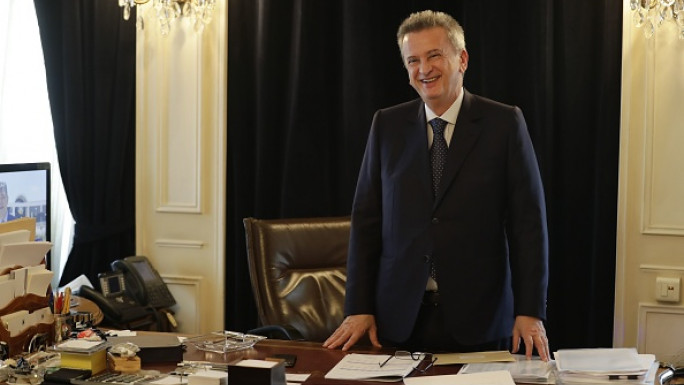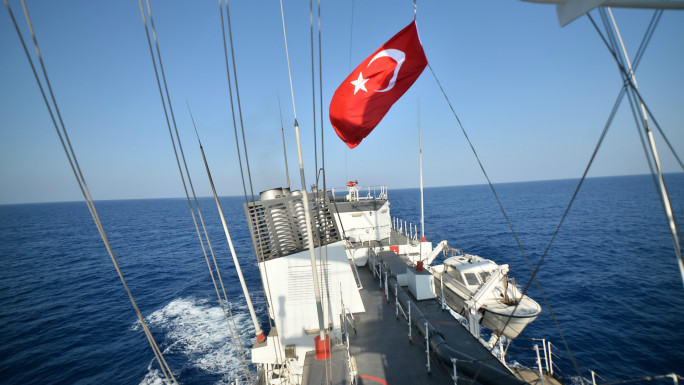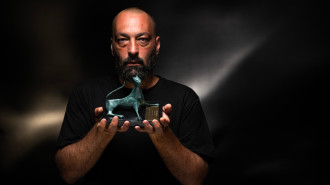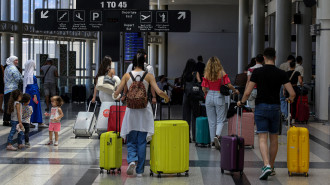
'Drink a watermelon smoothie — it's better': Egyptian local businesses gain popularity as global brands face the wrath of Gaza solidarity boycotts

In Egypt, where sympathy for the Palestinians runs deep, Egyptians have found limited means to show solidarity with Gaza. Their primary outlet has been through boycott campaigns targeting companies with any investment or economic ties, however remote, with Israel and its military.
This boycott movement has gained momentum recently, and there's been a notable marketing battle between the targeted international brands and local alternatives.
With the Egyptian government intensifying its crackdown on Gaza activism since the war began in October — going beyond street protests to also detain students promoting pro-Palestinian boycotts — Egyptians have found economic pressure on companies associated with Israel to be their main outlet for solidarity.
One brand that Egyptians have targeted due to alleged ties with Israel is PepsiCo. The American multinational corporation acquired SodaStream, an Israeli company, in 2018. SodaStream produces a machine for making carbonated drinks at home, leading Egyptians to seek local alternatives to Pepsi’s soft drinks.
Recently, Pepsi stirred controversy among Egyptians when it unveiled a new marketing campaign with the slogan “Stay Thirsty,” which many found inappropriate given the current context of the Gaza conflict and the boycott movement.
“The marketing mistake the company made was using a slogan that can be interpreted in multiple ways, especially given the timing of the Gaza war and the widespread calls in Egypt to boycott companies supporting Israel,” business planner and strategist Alaa Mohamed Etman told The New Arab.
Local brands in Egypt, such as SinaCola and Primo's Pizza, quickly took advantage of the situation to promote their products. SinaCola, a local soft drink company, launched a campaign with the slogan “We Won’t Keep You Thirsty.” Primo's, a local pizzeria, responded with “Drink a watermelon smoothie — it’s better” in reaction to Pepsi’s campaign.
Etman explained that Pepsi’s slogan was interpreted as provocative by Egyptians who are boycotting the company, as it implied that Pepsi is achieving commercial success despite the boycott calls. “But it could also mean that the more you get thirsty, the more Pepsi you drink during the heat to make you feel hydrated.”
Although the slogan is not new, Etman believes Pepsi failed to consider the current sensitivities among Egyptians.
Unlike other companies that reported losses in the Middle East — such as McDonald’s and Starbucks — Pepsi did not report a decline.
The company’s quarterly financial report revealed profits of over $18 billion and a net income exceeding $2 billion. Citing shopkeepers in Egypt, however, sales of Pepsi and Coca-Cola reportedly dropped in Egypt since the Gaza conflict began.
Local brands step in
As international brands faced backlash, local brands smartly stepped in to fill the gap and increase their market presence in Egypt.
Mohamed Ibrahim, Deputy CEO of Egyptian soft drinks company Trobi, stated that while the company started operations in 2002, its local sales were weak.
“Boycott calls have significantly boosted our success, which is why we used the slogan ‘Encourage Your Country’s Product’ on our drinks. This approach is currently a more effective marketing tool than any TV ad or campaign,” Ibrahim said.
Pepsi and Coca-Cola had dominated the soft drinks market for years, according to Ibrahim. “We introduced a soft drink product from 2002 until 2021, but it didn’t succeed locally despite our best efforts and substantial marketing investments. We had to export the product to neighbouring Arab countries to make up for the loss.”
Trobi re-entered the local market at the end of 2023. Ibrahim attributed the company’s success to the ongoing boycott and Egyptians’ desire to support local alternatives to global soft drinks. Sales increased by at least 80% after the war began.
While some local brands have thrived during the boycott, the Federation of Egyptian Chambers of Commerce warned in November that such campaigns could potentially harm the state’s economy. The federation noted that only local investors, their staff, and workers bear the brunt of the boycott, affecting the taxes paid by these companies, while the Western mother firms receive no more than 5% of the Egyptian units’ revenues.
‘Marketing 100% easier’
In the wake of widespread boycott calls against foreign products, local businesses in Egypt have experienced notable shifts in their market dynamics and strategies.
H.A. Cosmetics, an Alexandria-based brand established in 2024, produces skincare and haircare products.
Noha Muhammad, the brand’s marketing officer, told The New Arab that the boycott has made their launch smoother. “People are persuaded by boycott calls and look for local products as alternatives to foreign ones. We’ve made our marketing 100% easier by highlighting that our products are local.”
Khotwh, a local clothing company founded in 2009, now has nine branches across various governorates in Egypt.
“Our sales have increased by 50% compared to last year,” said Mahmoud Saeed, the company’s executive director. “We clearly benefited from the boycott calls. To maintain this success, Egyptian products must improve their quality if it’s subpar and avoid exploiting the situation to raise prices,” Saeed added.
Saeed also mentioned the company’s pride in showing solidarity with Palestinians in Gaza. In November, Khotwh sent about 35,000 jackets to Gaza through the Rafah crossing and provided free clothing to Palestinian patients in Egyptian hospitals.
Effective boycott calls?
Egypt is not the only country to intensify boycotts in response to the war on Gaza. Arab and Muslim consumers worldwide have boycotted products to express their political support in the conflict.
Karim Adel Obaid, head of the Al Adl Center for Economic and Strategic Studies, said: “There is no doubt that these companies have faced economic losses, at least in the Middle East. However, they are well-known brands with significant budgets and international partners. Therefore, their financial losses may not significantly impact their overall revenues.”
Commenting on the opportunities this has created for local brands, Obaid noted that while they initially capitalised on the boycott to promote their products, issues with quality and high prices did not always work in their favour.
However, Egyptians’ commitment to the boycott continued to support local brands. “Pepsi’s slogan ‘Stay Thirsty’ irritated Egyptians, leading them to revert to local products,” Obaid emphasised.
While the Boycott, Divestment, and Sanctions Movement (BDS) — a global nonviolent protest initiative — has made waves in the West, grassroots boycotts in Egypt have extended beyond the brands targeted by BDS to include all foreign companies. However, their impact is difficult to measure. In Egypt, the boycott campaigns have included all foreign companies, not just those listed by BDS.
“Boycotting is primarily driven by individuals within an economic community who genuinely want to boycott specific companies for political or religious reasons. The strength of the country’s economy plays a significant role in the success of these boycotts. The stronger the economy, with multiple high-quality and competitively priced alternatives, the more effective the boycott,” Obaid added.
In Egypt’s case, Obaid believes the boycotts might not positively impact the economy, especially given the high inflation rates.
“The boycotts could lead to the cessation of production lines, layoffs, and a decrease in foreign exchange income, which would negatively affect the trade balance and the state’s foreign exchange reserves,” Obaid concluded.
This piece was published in collaboration with Egab
